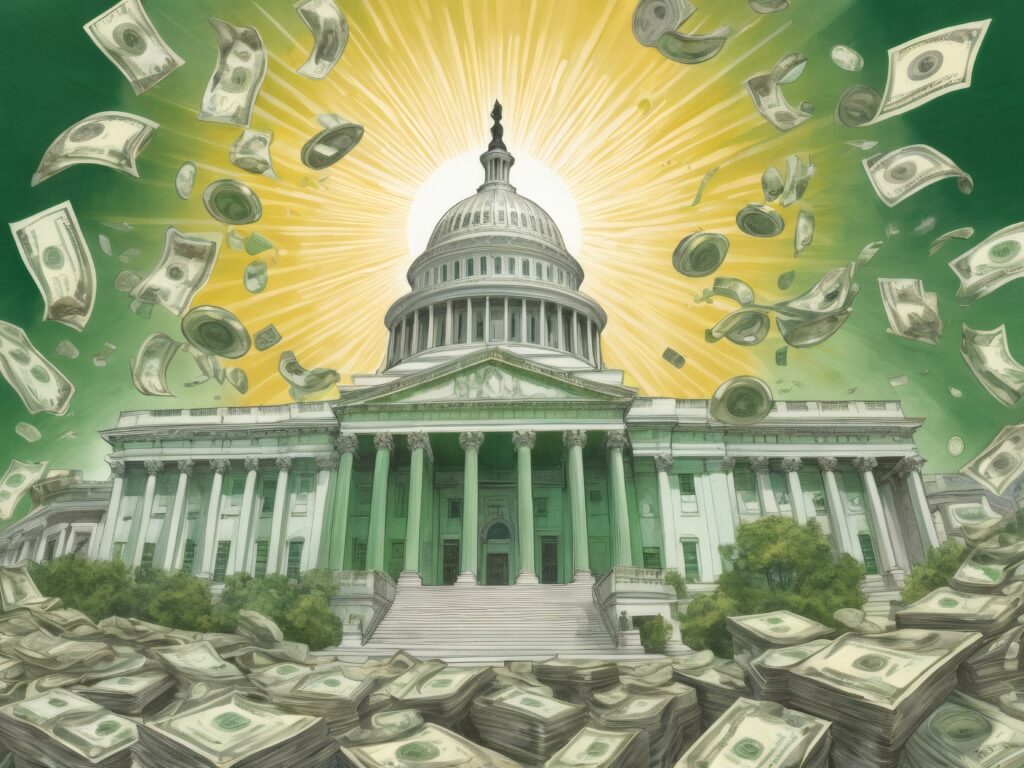Constrain Spending
Milton Friedman, a renowned American economist and statistician, was among the intellectual leaders of the Chicago school of economics. Spending, not taxes, is the real cost of government, he famously noted. Among Milton’s many principles is that a government that wants to get its budget under control must credibly commit to constraining spending, first and foremost.
Dominic Pino in NRO writes how Republicans have failed to do this. Yes, it is bad: unconstrained spending does not make tax increases good.
A short time ago, the “abundance” agenda was all the rage among liberal elites, notes Alysia Finley in the WSJ. Also read, Abundance Highlights Idealism in LaLa Land.
Rather than wage class warfare, they called for easing regulations to boost the supply of housing, energy, jobs, and more.
Then along came democratic socialist Zohran Mamdani, who won the New York City Democratic mayoral primary on a paucity platform that calls for higher taxes on the rich, greater income redistribution, and expanding government control over private business—or, as he put it in 2021, “seizing the means of production.”
Democrat Cartels
California Governor Gavin Newsom proposes legislation to exempt “affordable housing.” That is an exemption only if contractors pay prevailing union wage rates, which raise costs.
That’s how a new taxpayer-funded apartment complex in Los Angeles for homeless people ended up costing nearly $600,000 per studio to build. The development also boasts a café, gym, art room, community garden, computer labs and pet care.
Of course, government spending will always increase in nominal terms over time; inflation and population growth lead to higher costs. However, as Dominic Pino notes in NRO, is it necessary for the government to take up an increasingly larger portion of the economy over time?
That’s a choice, and it’s one that conservatives should reject, Pino advises.
Consider some math so simple that middle-school students can grasp it: raising taxes is just as much a solution to this problem as cutting spending.
Conservatives need to help voters understand that the federal government should not continue to grow as a share of the economy.
It’s true that the US has a lower tax burden than many other rich countries. This is something conservatives should seek to conserve and have been effective at conserving for the past several decades.
Make America Solvent Again
Something separates the relative low-tax burden on the middle class from the cradle-to-grave welfare model that has failed in other rich countries. Those countries that have endured and faced up to their own fiscal crisis have effectively focused on spending cuts rather than tax increases, continues Mr. Pino.
Ireland, Sweden, and Canada all got their debts under control with only modest tax hikes and much more significant spending cuts. Changing the budget-making processes and imposing fiscal rules helped make the spending reforms stick. The U.S. should follow their example, except it should reform spending before the inevitable crisis forces the issue.
Mr. Pino gives examples of how those three countries recovered fiscal sanity. Alex Durate (Tax Foundation) further explains how each of the three dug their way out of their debt hellholes.
“People Will Die”
Congress seems incapable of even discussing the careful consideration of the growth effects of selected policies.
Americans Need to Be Concerned
Alysia Finley notes, “Progressives are trying to drive more people to live in cities even as their policies make them unlivable, which is driving people who don’t share their politics to leave.”
Whether they use nudges or brute force, the goal is the same: Expand liberal government’s control over how people live.
How long can the world’s largest debtor remain its greatest superpower?
Put up or get out.
If you’re willing to fight for Main Street America, click here to sign up for the Richardcyoung.com free weekly email.





